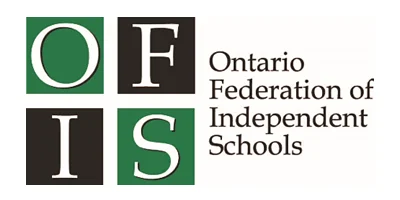According to Jackie Silberg in her article entitled, ‘The Importance of Music for Children.’:
Music helps develop children’s language skills: When young children listen to familiar words in songs, the neural transmitters in their brains are firing away, and their brains are building connections to the sounds they are hearing and the words they are singing. Singing songs and reciting poems and rhymes with children helps them develop early literacy skills.  Keeping a steady beat develops language. Clapping hands, stamping feet, and using rhythm instruments in time to music develops important pre-reading skills. Young children recognize words, sounds, rhythms, tones, and pitches long before they talk, sing, or dance. So, the more music your children have in their lives, the better they will speak and read.
Keeping a steady beat develops language. Clapping hands, stamping feet, and using rhythm instruments in time to music develops important pre-reading skills. Young children recognize words, sounds, rhythms, tones, and pitches long before they talk, sing, or dance. So, the more music your children have in their lives, the better they will speak and read.
Music helps develop children’s self-esteem: Music is a wonderful way to address the many needs of children because music is non-judgmental. There is no right or wrong, it just is what it is. Listening to different types of music nurtures self-esteem and encourages creativity, self-confidence, and curiosity.  Music helps develop children’s listening skills: Music encourages the ability to listen and thus to concentrate. Songs encourage speech and auditory discrimination. Through music, children learn to hear tempos, dynamics, and melodies. Listening for loud and soft, up and down, fast and slow encourages auditory development in the brain.
Music helps develop children’s listening skills: Music encourages the ability to listen and thus to concentrate. Songs encourage speech and auditory discrimination. Through music, children learn to hear tempos, dynamics, and melodies. Listening for loud and soft, up and down, fast and slow encourages auditory development in the brain.
Music helps develop children’s math skills: A simple song can include basic math skills such as, counting, repeating patterns, and sequencing.  Music and movement go together: Children naturally respond to music by moving and being active. Music helps children learn about rhythm and develop motor coordination.
Music and movement go together: Children naturally respond to music by moving and being active. Music helps children learn about rhythm and develop motor coordination.
Group dances like the Hokey Pokey help children learn about their body parts (“you put your right foot in,” “you put your left hand in…”), sense of direction (turning around, going left and right, moving back and forth), and rhythm patterns (clapping to the beat).
Music relieves stress: Stress can be relieved with songs, chants, finger plays, and moving to music. Singing together creates a feeling of safety and makes learning in a classroom much easier.  Music makes transitions easier: Getting children to move from one activity to another is easy when you sing a song. For example, sing to the tune of “The Farmer in the Dell,” “It’s time to go to lunch,” and you’ll see that the children will get ready much faster. Keep making up verses. “Let’s pick up the toys… Now let’s wash our hands,” etc.
Music makes transitions easier: Getting children to move from one activity to another is easy when you sing a song. For example, sing to the tune of “The Farmer in the Dell,” “It’s time to go to lunch,” and you’ll see that the children will get ready much faster. Keep making up verses. “Let’s pick up the toys… Now let’s wash our hands,” etc.
Music encourages creativity in children: A fun game to play with children is changing the words to familiar songs. It is a wonderful way to develop the creative process.  Music Is for Life
Music Is for Life
No matter what you age, you may not be able to jog around the park, but you can sing or play an instrument. Music is a gift you can give your child that will last a lifetime. The JK children love music and songs especially with actions and movement. The children really look forward to our Morning or Afternoon Meetings where we incorporate music through actions songs, chants and rhymes.  After participating in a music and movement workshop with Mrs. Gonyea, we were able to incorporate some new songs into our JK routines. We discovered that the children are constantly singing the songs during transition times and we can hear them singing the now familiar songs, during outdoor play. Some of our favourites are: ’I Like it in the Morning’ ‘Frere Jacques,‘and ‘5 Plump Peas’ ‘Hot Cross Bus’ or Cold, Cold Ice cream.’
After participating in a music and movement workshop with Mrs. Gonyea, we were able to incorporate some new songs into our JK routines. We discovered that the children are constantly singing the songs during transition times and we can hear them singing the now familiar songs, during outdoor play. Some of our favourites are: ’I Like it in the Morning’ ‘Frere Jacques,‘and ‘5 Plump Peas’ ‘Hot Cross Bus’ or Cold, Cold Ice cream.’
“Music can change the World.” ~ Beethoven









